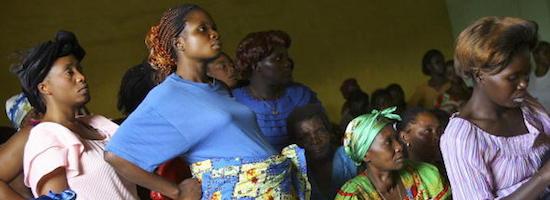
On July 1, 2017, the Democratic Republic of the Congo (DRC) announced that the government allocated US $2.5 million dollars for the purchase of contraceptives in fiscal year 2017. The allocation ensures the implementation of the National Strategic Plan for Family Planning (2014-2020), which aims to increase the 2013 modern contraceptive prevalence rate of 6.5% to 19% by 2020.
The National Permanent Multisectorial Technical Committee (CTMP) for family planning and Advance Family Planning local partner Tulane International led advocacy efforts to increase an initial, proposed budget allocation of $650,000. Additionally, they took measures to ensure that the allocation would be spent—unlike the year before.
The government has steadily improved in its commitment to purchasing contraceptives, from $300,000 in 2013 to $1 million in 2016. However, in 2016, the funds went completely unspent due to confusion on the disbursement process. In response, the CTMP and Tulane International convened a budget accountability workshop in March 2017 to clarify the process. Representatives from the Ministry of Budget walked attendees through the procedure to make sure that future allocations will be spent.
To push for a $2.5 million allocation, Advance Family Planning local partner Tulane International and the CTMP met repeatedly with the DRC’s budget authorities from the Ministry of Health, Ministry of Budget, and National Assembly to convey the importance of financing contraceptives. DRC faces a contraceptive funding gap of $78 million according to needs estimates for the 2016-2020 period.
Going forward, the CTMP, supported by Tulane International, will continue its advocacy efforts to obtain the effective disbursement of the $2.5 million dollars for the purchase and distribution of contraceptives. Discussions are already under way with the Ministry of Health, the Ministry of Budget, and the National Assembly for more funds dedicated to the purchase of contraceptives in 2018.

